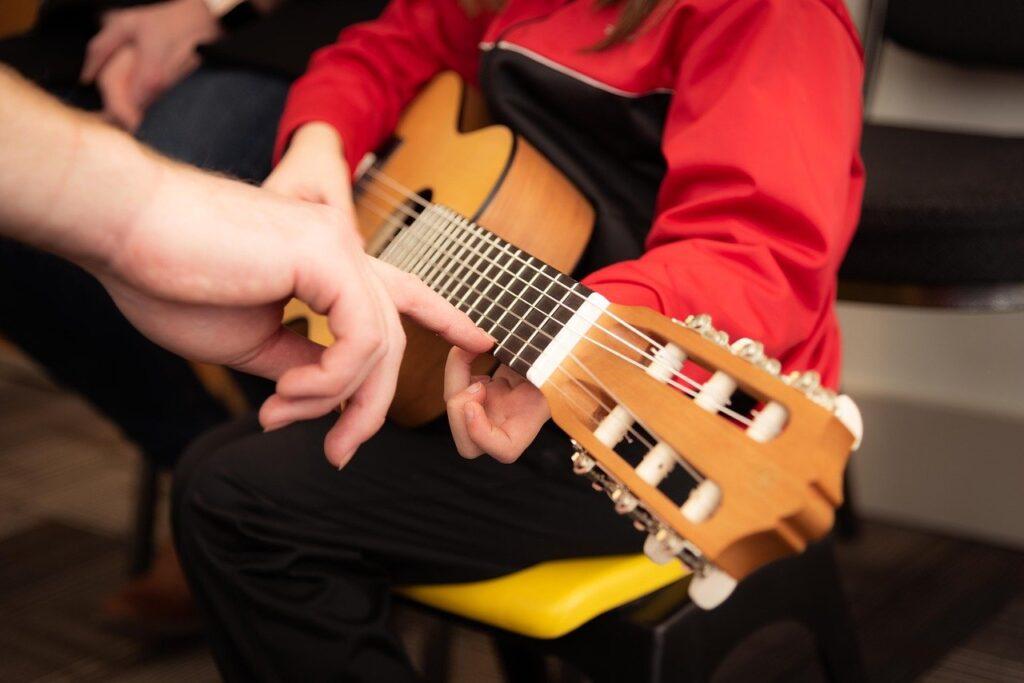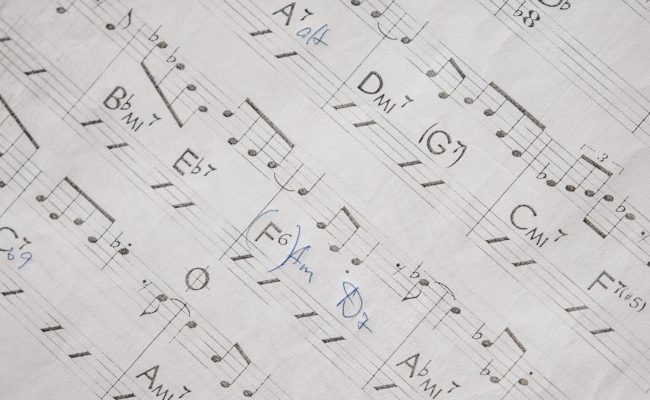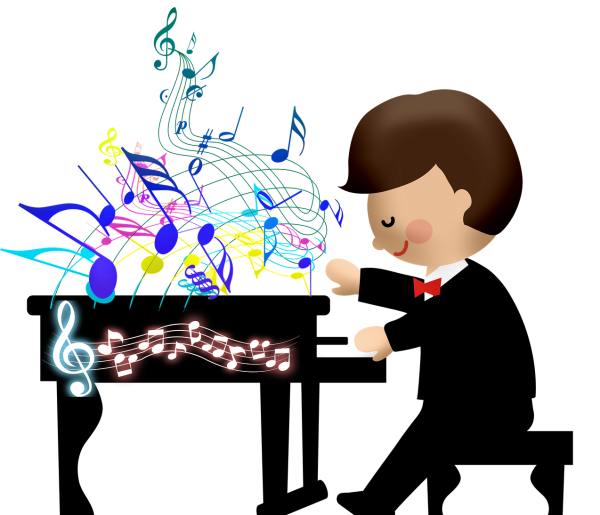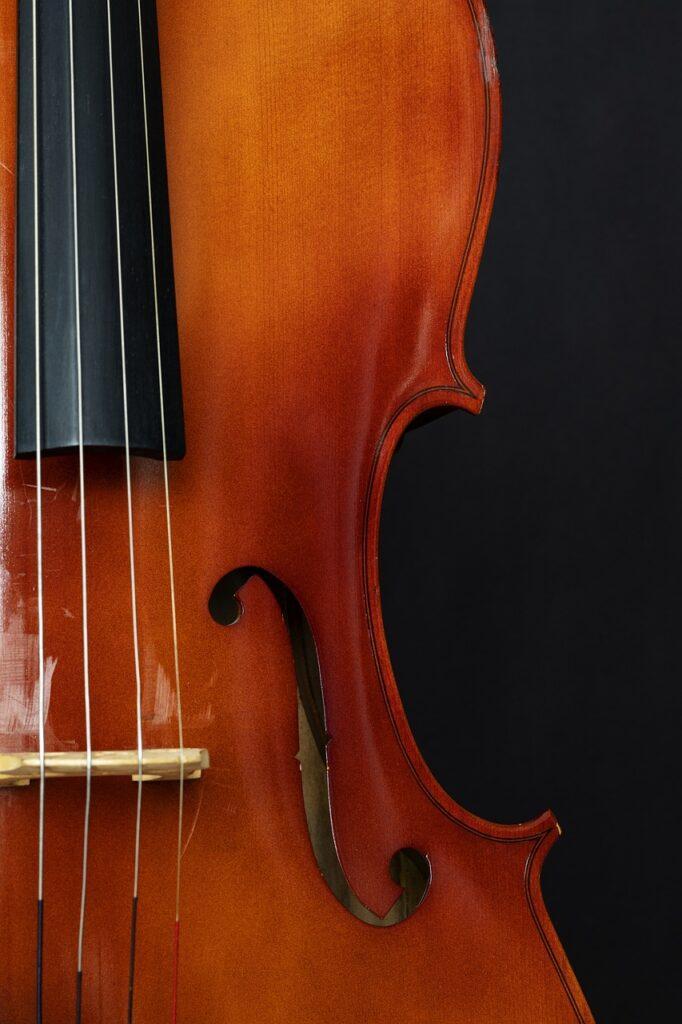Estimated reading time 3 minutes
Table of Contents
Yes, You Can Become a Music Teacher if You Have Special Needs
“Can I become a music teacher if I have special needs?” Having special needs doesn’t automatically bar you from teaching. In fact, if you want to teach special needs students, you have an edge as a teacher. Read more to find out how you can become a special needs music teacher.
The most important attributes for working with special needs students:
- Compassion: If you know how it feels to be different, it automatically gives you empathy for your students.
- Willingness to Try: A willingness to try is more important than you might think. Too often when I read social posts, it seems like music teachers want to drop special needs students rather than help them.
- Willingness to Self-Educate: With all the information online these days, this will be easier than you might think.
This article uses musical terms. For definitions, see the Glossary at the end of the post.

Becoming a Special Needs Music Teacher: ADD, LD, and Autism
“Can I become a music teacher if I have special needs?” Yes, but it doesn’t automatically mean you’ll know how to teach special need students.
We can’t cover all of the types of special needs in a blog post. However, you’ll usually work with students with ADD, LD (such as dyslexia), and autism.
When working with students with LD and ADHD:
- Present information visually and concretely.
- Color code the music (see the next section).
- Do the Alignment Procedure from chapter 12 of The Gift of Learning. This stops the student from disorienting. For information on disorientation, click here.
When starting lessons with a student on the autistic spectrum, you’ll need to gather information:
- Many students on the spectrum will be verbal and do well with music.
- Teaching these students will be much like teaching a typical learner.
- However, the social aspects of the lessons may need some sensitivity.
- Other students will have difficulty communicating.
- With these students you’ll need to color code the score, and/or do hand-over-hand instruction.
- Between these extremes exists a range of learning styles.
Ask the parents what level of communication the student has when compared to a typical learner.
- Find out how good the student’s receptive language (the words the student can understand) is vs the expressive language (the words the student can speak).
- I’ve found that I can work with a student with limited expressive language if the receptive language is good.
- For example, if I ask a student to put his hands on the instrument, can he do it if I model it for him?
- If the receptive language is good, I can work with a student even if he can’t talk.
However, many students with ASD will communicate and follow directions just fine.

Becoming a Successful Special Needs Music Teacher
“How can I become a special needs music teacher?” Use the information you collect when signing up the student to make the lessons go as smoothly as possible.
- First, the information you gather will help you place the student in a lesson book.
- Then, you see what the student can and can’t do during a lesson.
- For students who get frustrated with reading music, I adapt the score using multisensory strategies such as color coding.
Color coding the score:

Final Thoughts to “Can I Become a Music Teacher if I Have Special Needs?”
“Can I become a music teacher if I have special needs?” Yes, lots of successful music teachers have dyslexia, ADD, or ASD. Many of them specialize in special needs students.
It’ll be your choice whether you decide to work with special needs students. Regardless, if you want to be a music teacher, you shouldn’t let having special needs stop you from pursuing your dreams.
© 2023 Geoffrey Keith
Join me for in-person or online lessons today!
Glossary
The Successful Music Student Blog is Expanding
The Successful Music Student Blog is expanding by adding an extra post day, a new blog category, and website upgrades. Check out what’s new! Estimated reading time 2 minutes.
Read MoreHow to Read Basic Guitar Tab for Beginners
Are you passionate about playing guitar? Do you want to turbo charge your learning using guitar tab? Guitar tab is a popular music notation that can help you master guitar songs quickly and easily. Keep reading “How to Read Basic Guitar Tab for Beginners” to learn what it is and how it works. Estimated reading time 4 minutes.
Read MoreIntonation and Supplemented Equal Temperament
Tired of having your guitar or synth sound out of tune? “Intonation and Supplemented Equal Temperament” shows how to make them sound amazing! Estimated reading time 12 minutes.
Read MoreSong Structure, Musical Phrases, Musical Structures and Forms
Do you want to know how song structure, musical phrases, musical structures and forms work? Musical structures and forms in instrumental music works differently than popular song structure. However, motifs and musical phrases works pretty much the same in either type of writing. In this post, we’ll talk about all that plus the difference between motifs and leitmotifs. Read more to get music structure examples for both songwriting and instrumental music. Estimated reading time 5 minutes.
Read More




